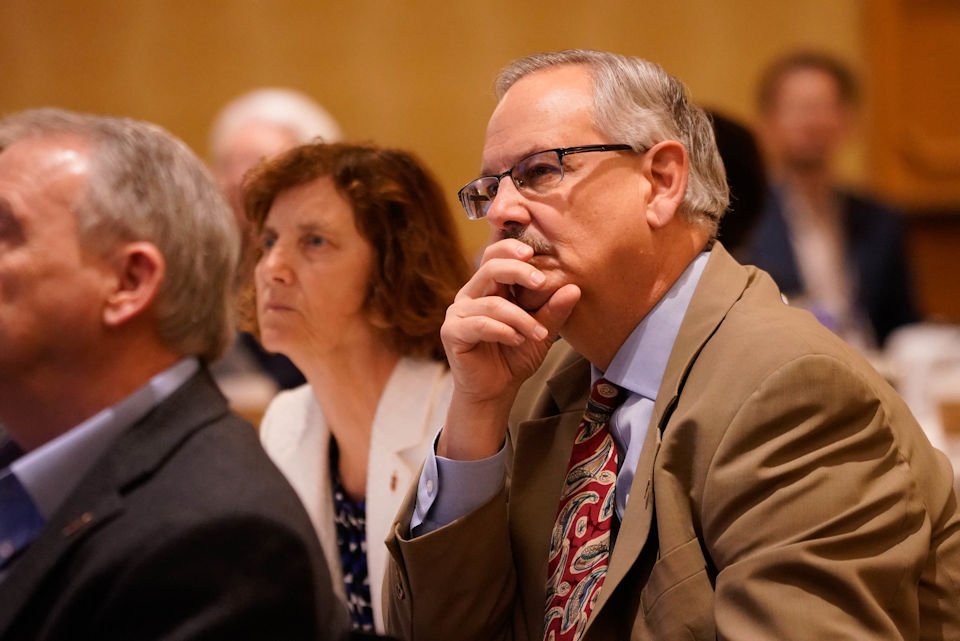Council of Bishops asks the Judicial Council, UMC’s top court, to rule on five questions related to the Traditional Plan.
WASHINGTON, D.C. – The Council of Bishops of The United Methodist Church (COB) has asked the Judicial Council for a declaratory decision as to the constitutionality, meaning, application and effect of certain petitions adopted as the Traditional Plan by the 2019 General Conference held in St. Louis, Missouri, in February.
Although the Judicial Council addressed the constitutionality of all of the petitions adopted at the 2019 General Conference in Decision 1378, the COB has identified numerous issues regarding the Traditional Plan that need to be addressed for the benefit of The United Methodist Church.
However, rather than submit all of those issues, the COB has determined that many of the questions identified are best addressed in the context of specific factual situations in which they arise within an annual conference.
Thus, the COB is asking the Judicial Council to address the following questions:
Question 1: Does the expanded definition of “self-avowed practicing homosexual” in Paragraph 304.3 (Petition 90032) apply to persons who have already been ordained under previous definitions of that term? If so, does the expanded definition constitute impermissible and unconstitutional ex post facto legislation held to be improper in Judicial Council Decision 219? If it does not apply to persons ordained before the effective date of the legislation, does the expanded definition violate the principle of legality by applying different standards to persons of the same class or status?
Question 2: Is the expanded definition of “self-avowed practicing homosexual” in Paragraph 304.3 unconstitutional because the categories of “living in a same-sex marriage, domestic partnership or civil union” do not allow for the presumption that a person is “practicing” to be rebutted as provided for in Judicial Council Decision 1341? If not, may a person be charged and found guilty of being a self-avowed practicing homosexual pursuant to Paragraph 2702.1b by simply proving that the person is “living in a same-sex marriage, domestic partnership or civil union”?
Question 3: Is the phrase “or has failed to certify it carried out the disciplinarily mandated examination” in Paragraph 415.6 (Petition 90036) unconstitutional on the ground that the certification requirement in Petition 90038 was ruled unconstitutional in Decisions 1366 and 1377?
Question 4: If the binding civil law in an annual conference provides that no person, including persons serving as ordained clergy, can be suspended without pay (e.g., the employment law in a central conference) or the respondent is appointed to an extension ministry (in which the person is paid by an entity other than the church, such as a school or the military), can a person found guilty of a chargeable offense under Paragraphs 2702.1(b) or (d) be assessed a mandatory minimum penalty of one (1) year’s suspension “without pay” pursuant to Paragraph 2711.3 (Petition 90042)?
Question 5: If the answer to the foregoing question is “no,” does that part of Paragraph 2711.3 violate the principle of legality, rendering it unconstitutional for all persons because it cannot be applied equally to all persons found guilty of the same offense?
In its request, filed June 26, 2019, the COB reported that bishops voted to request the declaratory decision on May 7, 2019 during the May meeting held outside Chicago.
In a related matter, the COB is also asking the Judicial Council for a declaratory decision as to the effective date of Paragraph 2553 (Petition 90066 as amended). The petition deals with disaffiliation of local churches over issues related to human sexuality.
The COB notes that when the minority report regarding Petition 90066, as substituted and edited, was adopted, the substitution of the minority report did not expressly include or exclude the prefatory language in the original petition that stated an effective date.
Hence, the Council of Bishops is making a limited request for a declaratory decision as to the effective date of Paragraph 2553.
The Judicial Council’s next meeting is set for October.
Last Updated on July 1, 2019

